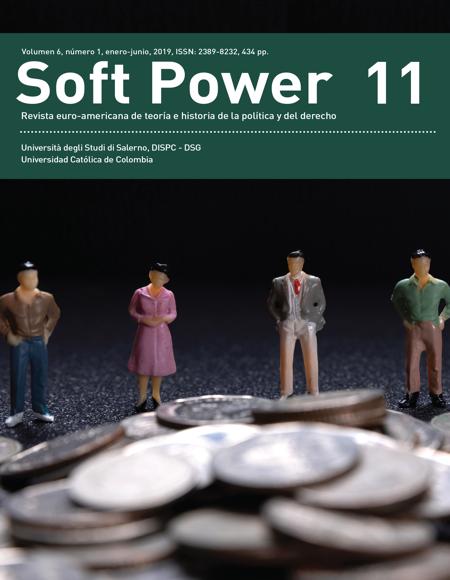Abstract
We are seeing today an extraordinary form of class war. Its winning weapon is in facing one against another, stable and precarious, old and young, men and women, citizens and foreigners, residents and immigrants. In this scenario, the State —emptied of its political-democratic content— isn’t died: it preserved his administrative and bureaucratic framework, establishing the ideal environment for neo-capitalist ideology. Just like the State, law also experienced an intense transformation, functional to the interests of neo-capitalism. The State survived as an institution without sovereignty. The lost sovereignty decomposed the public sphere and allowed the privatization of the political subjects. But sovereignty is not disappeared, people is not necessarily a subject without identity, classes exist and class struggle is not a rusty tool of the old-Marxism. A renewed popular sovereignty, restrained by politics, represents, perhaps, the only actual alternative to the “sovereignty of the market”.
Keywords

References
Bourdieu, P. (1993). La misère du monde. Paris: Seuil.
Bloch, E. (1968). Über Karl Marx. Frankfurt a. M.: Suhrkamp Verlag.
Crouch, C. (2003). Postdemocrazia. Roma-Bari: Laterza.
Dardot P. & C. Laval (2013). La nueva razón del mundo. Ensayo sobre la sociedad neoliberal (2009). Barcelona: Gedisa.
Formenti, C. (2016). La variante populista. Lotta di classe nel neoliberismo. Roma: DeriveApprodi.
Gallino, L. (2011). Finanzcapitalismo. Torino: Einaudi.
Gallino, L. (2012). La lotta di classe dopo la lotta di classe. Roma-Bari: Laterza.
Gallino, L. (2013). Il colpo di Stato di banche e governi. Torino: Einaudi.
Grossi, P. (1998). Assolutismo giuridico e diritto privato. Milano: Giuffrè.
Hayek, F. (1944). The Road to Serfdom. London: Routledge.
Kelsen, H. (1920). Das Problem der Souveränität und die Theorie des VölkerrechtsL el neocapitalismo.l tempo llo una nuovasettantimamente connessa federazione europea, ma di una mrinato la e violazione della C. Beitrag zur einer Reinen Rechtslehre. Tübingen: Mohr.
Lazzarato, M. (2013). Il governo dell’uomo indebitato. Le tecnologie della politica neoliberista. Roma: DeriveApprodi.
Losurdo, D. (2013). La lotta di classe: una storia politica e filosofica. Roma-Bari: Laterza.
Mitchell W. & Th. Fazi (2017). Reclaiming the State. A Progressive Vision of Sovereignty for a Post-Neoliberal World. London: Pluto Press.
Ohmae, K. (1995). The End of the Nation State. The Rise of Regional Economies. New York: The Free Press.
Panitch L. & S. Gindin (2004). Global Capitalism and American Empire. Socialist Register, 40, 1-42.
Polanyi, K. (1944). The Great Transformation. New York: Farrar & Reinhart.
Preterossi, G. (2015). Ciò che resta della democrazia. Roma-Bari: Laterza.
Rosanvallon, P. (2006). La contre-démocratie. La politique à l’âge de la défiance. Paris: Editions du Seuil.
Salento A. & G. Masino (2013). La fabbrica della crisi. Finanziarizzazione delle imprese e declino del lavoro. Roma: Carocci.
Schmitt, C. (1921). Die Diktatur. Von den Anfängen des modernen Souveränitätsgedankens bis zum proletarischen Klassenkampf. München-Leipzig: Duncker und Humblot.
Wacquant, L.J.D. (1999). Les prisons de la misère. Paris: Raisons d’agir.
Zolo, D. (1974). La teoria comunista dell’estinzione dello Stato. Bari: De Donato.
Zolo, D. (2000). Chi dice umanità. Guerra. diritto e ordine globale. Torino: Einaudi.













